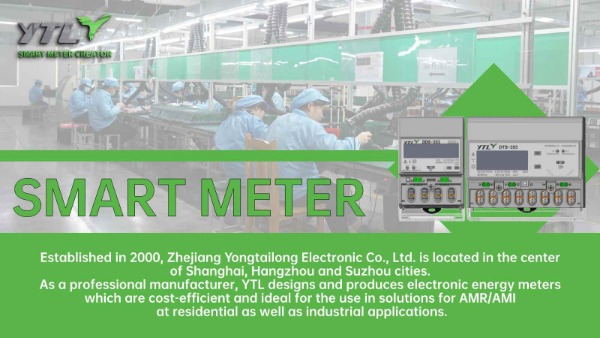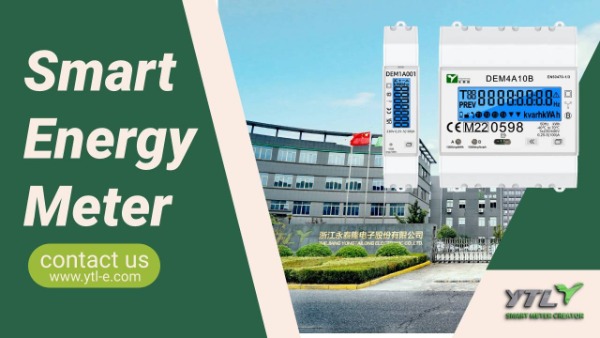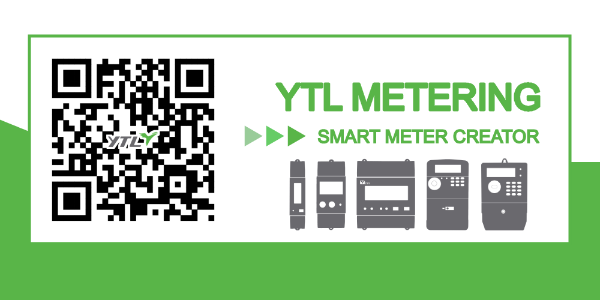The Future of Electricity Meter
 With the continuous advancement of technology and the increasing focus on energy efficiency, the electricity meter, as an important measuring device in the power system, has attracted attention for its future development prospects. This article will explore the future trends of electricity meters, including intelligence, automation, energy conservation, and environmental protection. The aim is to provide useful references for technological innovation in related fields.
With the continuous advancement of technology and the increasing focus on energy efficiency, the electricity meter, as an important measuring device in the power system, has attracted attention for its future development prospects. This article will explore the future trends of electricity meters, including intelligence, automation, energy conservation, and environmental protection. The aim is to provide useful references for technological innovation in related fields.
1. Intelligence
With the rapid development of technologies such as the IoT, cloud computing, and big data, intelligence has become an important development direction in various industries. As an important component of the smart grid, the intelligent development of electricity meter is of great significance for improving the operational efficiency and stability of the power system. In the future, electricity meter will have more advanced intelligent functions, such as automatic meter reading, remote monitoring, data analysis, and so on. Through the application of intelligent technology, electricity meter can not only achieve remote and automated control, improve the operational efficiency of the power system, but also provide more accurate and reliable data support for energy management through real-time monitoring and analysis of data.
2. Automation
Automation is one of the core elements of Industry 4.0 and also an important trend for the future development of electricity meters. With the increasing complexity and scale of the power system, traditional manual meter reading and operation and maintenance methods have become difficult to meet the needs of modern power systems. Therefore, in the future, electricity meters will achieve a higher degree of automation, including functions such as automatic meter reading, automatic detection, and automatic repair. By applying automation technology, not only can the operational efficiency of the power system be greatly improved and maintenance costs reduced, but it can also reduce errors and faults caused by human factors, and enhance the reliability and stability of the entire power system.

3. Energy Conservation and Environmental Protection
As global climate change and environmental issues become increasingly serious, energy conservation and environmental protection have become important missions in various industries. As an energy metering device, the improvement of the energy-saving and environmental protection performance of electricity meters is of great significance in reducing energy waste and lowering carbon emissions. In the future, electricity meters will adopt more energy-saving and environmentally friendly materials and designs, such as low-power consumption chips and renewable energy integration. In addition, by optimizing the algorithms and data processing technology of electricity meters, the measurement accuracy and stability of electricity meters can be improved. This reduces energy waste caused by measurement errors. At the same time, the government and enterprises will also strengthen the promotion and application of energy-saving and environmentally friendly electricity meters to promote sustainable development in energy utilization.
4. Integration and Modularization
As the requirements for equipment integration and modularization in the power system continue to increase, the design and manufacturing of electricity meter will also move towards integration and modularization. Integrated and modular design can improve the reliability and maintainability of electricity meter, reduce production costs and lead times. At the same time, integrated and modular design can also easily achieve customized production of electricity meter to meet the needs of different users. Under this trend, electricity meter will achieve higher integration and modularization, thereby improving the performance and reliability of the entire power system.
5. Standardization and Interoperability
Standardization and interoperability are key to achieving interoperability between different brands and models of electricity meter. In the future, with the popularization of smart grids and the increase in cross-regional power trading, the need for compatibility and interoperability between different systems will become more urgent. Therefore, the standardization and interoperability of electricity meter will be further strengthened to achieve seamless connection and data sharing between different devices. By applying standardization and interoperability technology, the operational efficiency and reliability of smart grids can be significantly improved, while reducing maintenance costs and failure rates.
The future development of smart meters will present trends towards intelligence, automation, energy conservation, environmental protection, integration, modularity, standardization, and interoperability. These trends will collectively drive the continuous innovation and development of smart meter technology, providing strong support for the intelligent, efficient, and sustainable development of the power system. However, in the process of achieving these goals, it is still necessary to overcome many technological and market challenges. For example, ensuring the data security and privacy protection of smart meters, reducing the operational and maintenance costs brought about by automation technology, and improving the environmental performance and economy of energy-saving and environmentally friendly smart meters.

Comments
Post a Comment